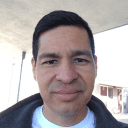Angel Novelo, outreach coordinator for Los Angeles-based nonprofit CIELO (Comunidades Indígenas en Liderazgo) and interpreter for those who speak Maya, has heard the stories of the challenges faced by Mesoamerican Indigenous people who can’t speak, read, or write in Spanish, much less English.
“We’ve heard of people who’ve had their medical appointments canceled or they are denied a service because they don’t have an interpreter,” said the 43-year-old native of the town of Kancab in the municipality of Tekax, Yucatan.
“Or their children have died in the hospital without them knowing why or they don’t get the treatment they need because they can’t fill out a form.”
It is estimated that there are 34,000 indigenous migrants in Los Angeles County and some 170,000 across the California, many of them Mixtecs, Zapotecs, Purépechas and Mayans who face language barriers and cultural isolation. And who, according to Novelo, are “invisible” because they are often lumped with the rest of Spanish-speaking Latinos, though they have particular needs.
“We don’t exist and the government can’t see us unless we start collecting data about them,” Novelo said.
That’s the aim of SB 1016—the Latino and Indigenous Disparities Act—a legislation currently awaiting the Governor Gavin Newsom’s signature, which will collect more specific demographic health data to address disparities for those communities in the state.
“By enhancing health data, we can better tailor resources and services to address the needs of our diverse populations,” said State Senator Lena Gonzalez (D-Long Beach), who introduced the measure for the second time this year after the Governor vetoed it last year citing federal standards that were being drawn up at the time.
“Today, we move one step closer to achieving health equity for Latino and Indigenous Mesoamerican communities in California,” said Majority Leader Gonzalez. “By enhancing health data, we can better tailor resources and services to address the needs of our diverse populations. I am deeply grateful to my Assembly and Senate colleagues for their support, and to the strong organizations and community voices that continue to champion this essential policy.”
“We applaud the leadership of our California Legislature in doubling down on its commitment to protect the Latine and Indigenous communities of our Golden State. Data equity can save lives, and collecting and disaggregating data for a community that represents 40% of the California population and contributes $83 billion in state taxes is not only the right thing to do but a sound economic decision,” said Dr. Seciah Aquino, Executive Director of the Latino Coalition for a Healthy California. “As we celebrate this vote, we recognize the fate of this crucial legislation once again rests with the Governor. Mr. Newsom, help us heal. Help us prepare. Help us prevent. This data can save lives.”
Those standards were finalized this year, and according to Mar Velez, Director of Policy for the Latino Coalition for a Healthy California, a statewide policy organization focused on Latino health, California can go beyond those standards and collect this data to target the health needs of these communities better.
“From Fresno to Ventura and Monterey county, sometimes health workers try to deliver services and have paperwork in Spanish, but they’re not able to understand it because these populations don’t speak Spanish,” Velez said. “There is a huge gap in need. We don’t know the need because we’re not collecting the data.”
Velez noted that if signed into law, starting in 2028, health state forms would have space to collect demographic data about Mesoamerican indigenous communities and seven specific indigenous languages, including Zapotec and Maya. There would also be a blank box where people could fill out if they don’t see their specific nation or language.
“We want to ensure that the indigenous populations exist within state data,” Velez explained. “If indigenous people work in restaurants, in the fields, as frontline workers, the least we can do is count them and be known and seen in health services.”
Such information would then be used to direct funding and resources to those specific communities.
If successful, this data collection will eventually extend to other departments.
On Wednesday, September 4, Novelo, Velez, and other supporters of the measure traveled to the Governor’s office in Sacramento to deliver a traditional Guatemalan blanket and postcards collected from indigenous communities throughout the state urging the Governor to sign the bill.
They also reminded the Governor’s staff of Newsom’s speech at the Democratic National Convention stressing the importance of diversity.
“If we value diversity, which he said at the DNC, if we value our differences, if he wants to elevate and be known for that, this makes 100 percent sense for him to sign,” Velez said. “Calfornia can be a leader for bringing this population out of the shadows.”
Lena Gonzalez: Transparency, Health, and Safety, Three Bills Advance in Sacramento

